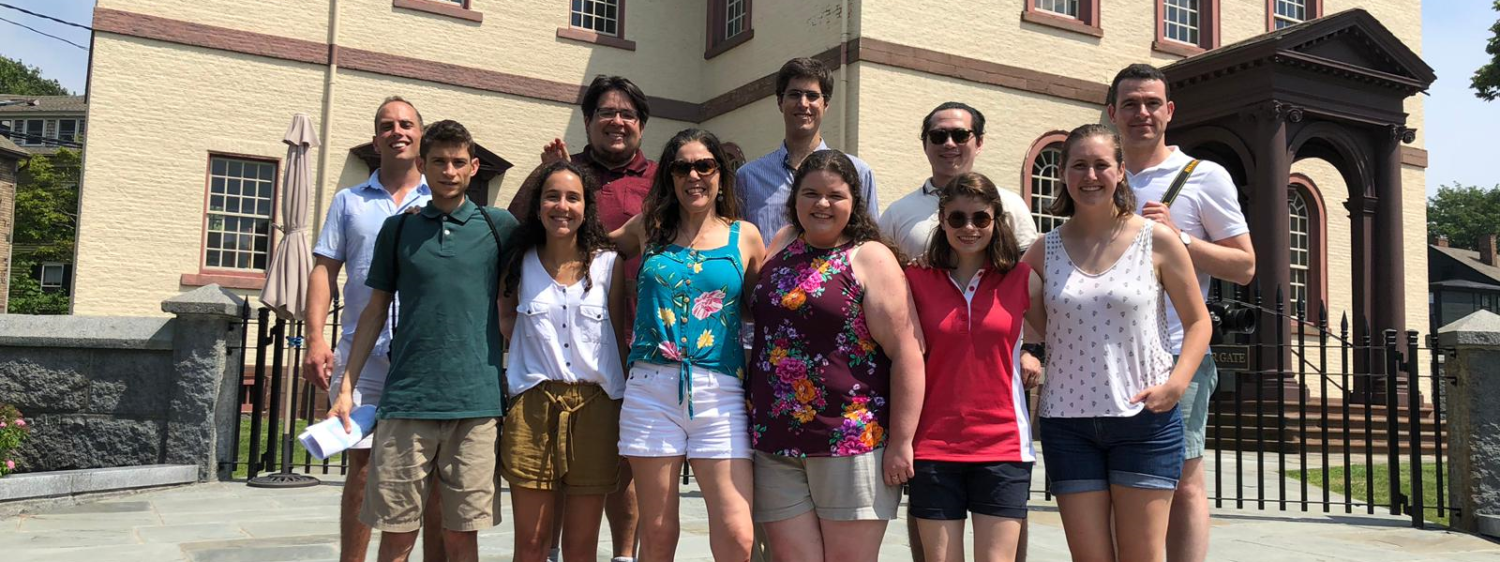by fiatadmin on December 23, 2019
Selected Readings and Guiding Questions
Scala Foundation
Faculty Instructor: Margarita A. Mooney, Ph.D.
Big Questions
1. What are the ends of education?
2. What is liberal arts education? How does it differ from other understandings of education (content, role of teacher, underlying assumptions about the human person)?
3. Are philosophy and theology specialized fields of knowledge, or foundational to all other knowledge?
4. How are the various fields of knowledge related to each other? How does the knowledge that comes from humanities, including literature, aesthetics, and religion relate to knowledge from sciences, math and engineering? Are the fields that study human persons in society (such as sociology, psychology, anthropology, economics, law and history) a subset of sciences or of the humanities, or both?
5. What should be the role of the teacher in education? What educational practices support the proper ends of education?
6. What are some biggest challenges to education today (technology, free speech, emotional immaturity)? What are some responses to those challenges? What kinds of knowledge, resources, networks and practices can help meet those challenges?
7. What do friendship and community have to do with education?
8. What do conceptions of the human person (philosophical anthropology) have to do with education? How is education related to freedom, happiness, cultural, the temporal order and the spiritual order?
9. Name one author/reading/idea that really impacted you. Summarize that idea (paraphrasing or quoting the text), and explain why that idea has some practical applications to your particular context.
Session 1
James Bernard Murphy. 2006. “Why A Core?” Academic Questions.
Marilynne Robinson. “Reclaiming a Sense of the Sacred: A Writer Contemplates Religion, Science, Art and the Miraculous.” Chronicle of Higher Education, 12 Feb. 2012.
Nicanor Austriaco, OP. 2017. “Identity Studies in the Service of a Classical Education.” Public Discourse.
Session 2
Ian Ker, The Genius of John Henry Newman. Chapter 1, “The Educator,” pp. 1-36.
Session 3
Jacques Maritain, Education at The Crossroads. Chapter 1, “The Aims of Education.”
Session 4
George Marsden, Outrageous Idea of Christian Scholarship, Chapter 4, “What Difference Could it Possibly Make?”
Pope Benedict XVI. “Quaerere Deum.” Address to Representatives from the World of Culture at the College des Bernardins in Paris. September 12, 2008. Pp. 225-236 in A Reason Open to God, edited by J. Steven Brown. Washington, DC: Catholic University of America Press, 2013.
Session 5
Kevin Schmeising. “A History of Personalism.” Unpublished research paper.
Max Scheler. “Man and History.” Chapter IV, pp. 65-93 in Philosophical Perspectives. Translated from the German by Oscar A. Haac. Boston: Beacon Press, 1958.
David Brooks. “Personalism: The Philosophy We Need.” New York Times, Op-Ed page, June 14, 2018.
Josh Herring. “Til We Have Faces: A Review of Juan Manuel Burgos’s Introduction to Personalism.” Acton Institute Blog, March 2019.
Session 7 and 8
August Del Noce, Crisis of Modernity, Chapter 1 “The Idea of Modernity” pp. 1-18; Chapter 5 “Secularization and the Crisis of Modernity” pp. 73-86; Chapter 6 “Towards a New Totalitarianism” pp. 87-91,
Carlo Lancellotti, Translator’s Overview of del Noce.
Session 9
Neal Postman, Amusing Ourselves to Death. Forward, Chp. 2 “Media as Epistemology,” Chp. 6 “The Age of Show Business,” and Chapter 11 “The Huxleyan Warning.”
Matthew Crawford. “Attention as a Cultural Problem.” Chp. 1, pp. 3-27 in The World Beyond Your Head: On Becoming an Individual in an Age of Distraction. New York: Farrar, Strauss, and Giroux. 2016.
Session 10
Jacques Maritain, Freedom in the Modern World, Chp. 2 “Religion and Culture.”
Session 11
Jean LeClerc, Love of Learning and the Desire for God, Chp. 7 “Liberal Studies”, pp. 112-145.
Elizabeth Corey, “Learning in Love: An Awakened Desire is the Basis for a Truly Liberal Education,” First Things, April 2014.
Peter Brown, The Rise of Western Christendom, Chp. 9 “Powerhouses of Prayer: Monasticism in Western Europe,” pp. 221-231.
Session 12
Greg Lukianoff and Jonathan Haidt. 2018. The Coddling of the American Mind: How Good Intentions and Bad Ideas are Setting up a Generation for Failure. New York: Penguin Press. Chapter 1 “The Untruth of Fragility.” Chapter 2 “The Untruth of Emotional Reasoning” and Chapter 3 “The Untruth of Us Versus Them.” (pp. 19-77)
Herbert Marcuse. 1968. “Repressive Tolerance.”
Session 13
Paulo Freire, Pedagogy of the Oppressed. Chp. 2 on “The Banking Model of Education” and Chapter 4 on “Cultural Revolution.”
Jacques Maritain, Education at The Crossroads. Chapter 2, “The Dynamics of Education,” pp. 29-57.
Session 14
August Del Noce, Crisis of Modernity. Chapter 8 “The Death of the Sacred” pp. Pp. 118-136, and chapter 10 “The Ascendance of Eroticism”, pp. 157-186.
Session 15 and 16
Luigi Guissani, Risk of Education. (entire book)
